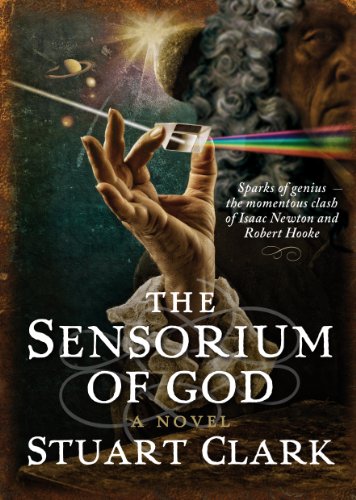The Sensorium of God
The novel opens in 1679. Despite the work of Kepler, Galileo and Tycho Brahe, the movement of the stars and planets remains a mystery. Edmund Halley, Isaac Newton and Robert Hooke are engaged in complementary and yet rival research, striving to further scientific knowledge. However, their research is seen in some areas as undermining God, and therefore the King’s authority. Attacks on religion are seen as attacks on the state and therefore treason. Scientific discussion is undermined by accusations of plagiarism, atheism and political intrigue. Throw in Newton’s involvement in Alchemy, the suspicions of the Church and changes in the monarchy, the chance of disaster, both on a personal and professional basis, is a realistic outcome.
This is the second novel in a trilogy that dramatises pivotal moments in the history of astronomy through the lives of some of the scientists and thinkers whose work came to shape the modern world. In his well-written and well-researched novel, Stuart Clark brings alive both key moments and people who have stretched the boundaries of our knowledge in an enthralling story which brings the late 17th-century to life. Recommended.










